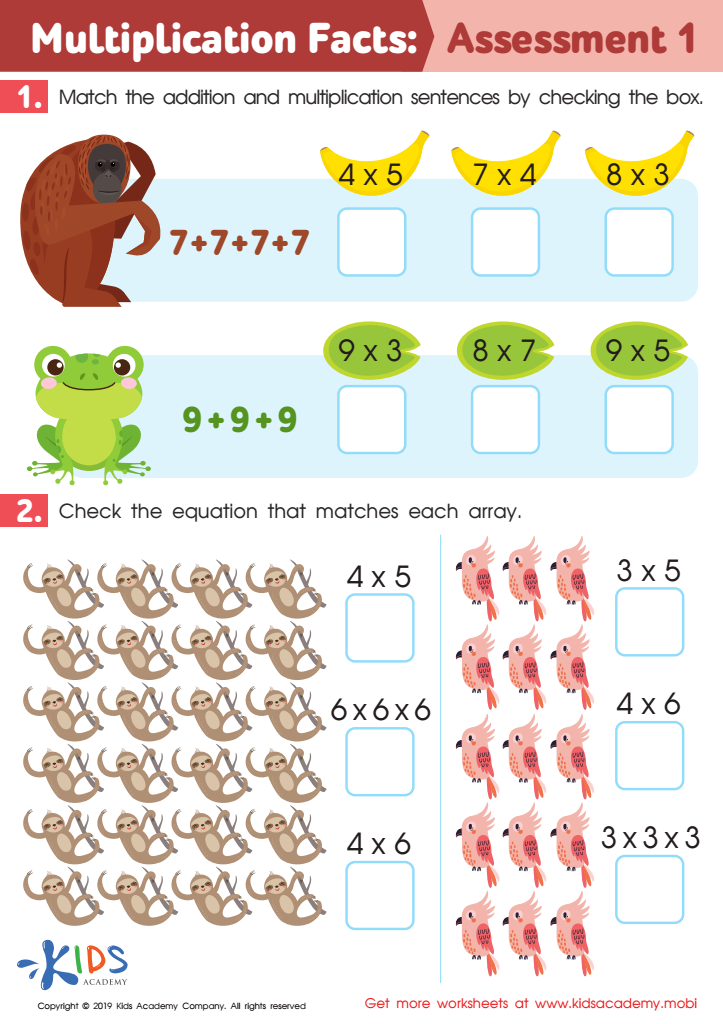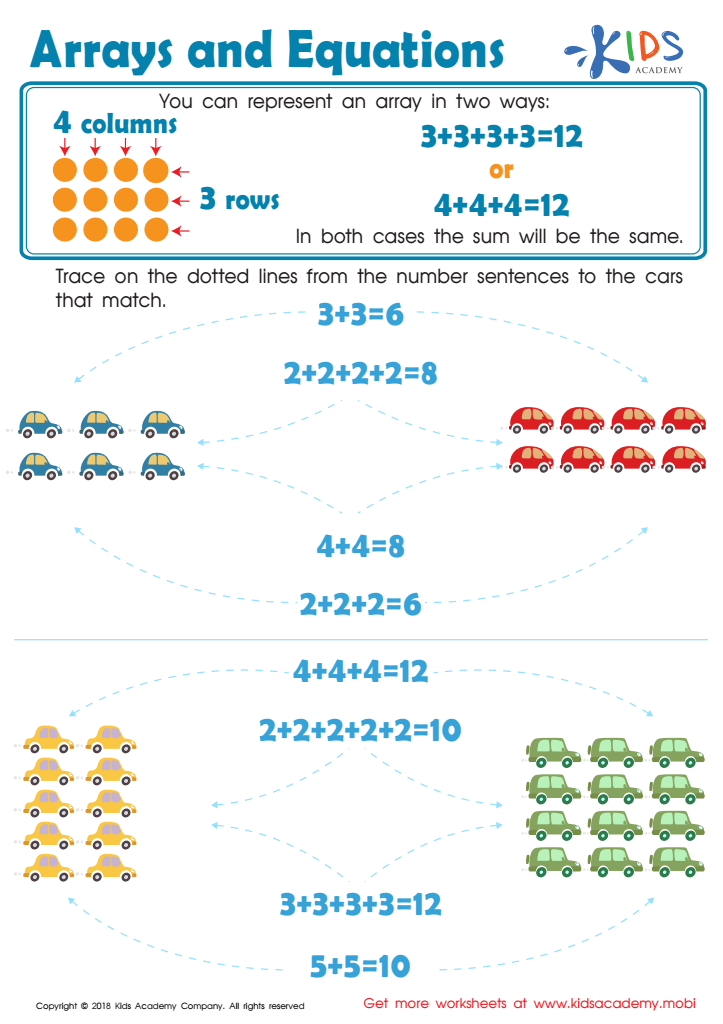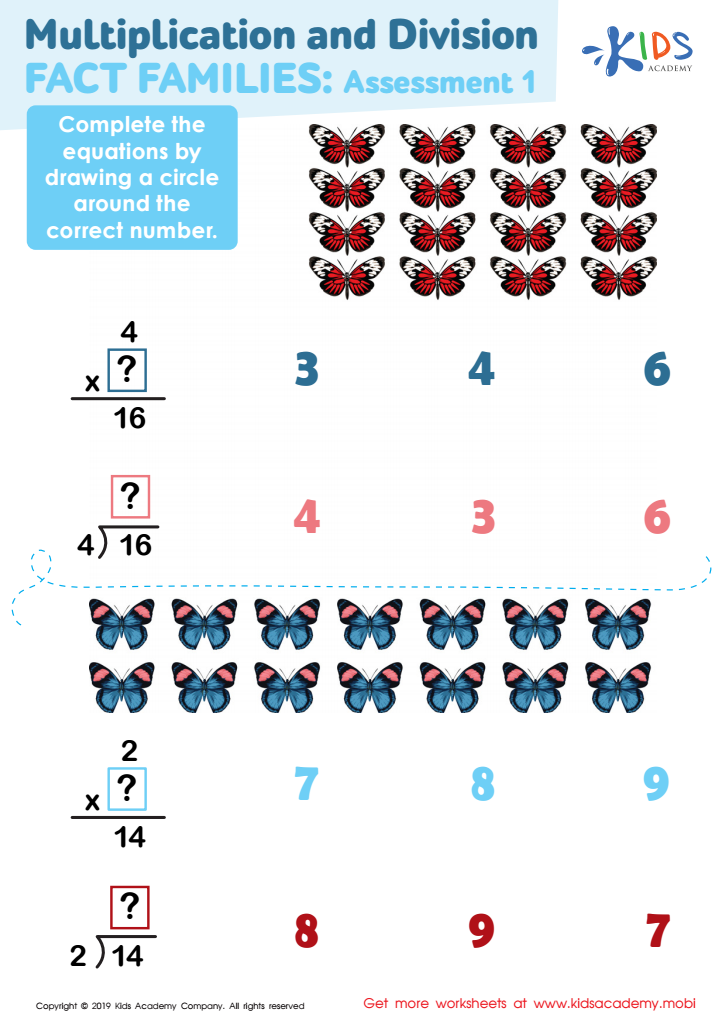Multiplication practice Normal Arrays Worksheets for Ages 6-8
3 filtered results
-
From - To
Boost your child's math skills with our Multiplication Practice Normal Arrays Worksheets, designed specifically for ages 6-8! These engaging worksheets transform multiplication learning into an exciting visual experience using arrays. Children will build a strong foundation in multiplication as they arrange and count groups of objects, enhancing their understanding of concepts like equal groups and repeated addition. Our worksheets encourage interactive learning, making math fun and accessible. Perfect for classroom or home use, they help reinforce basic multiplication facts while promoting critical thinking and problem-solving skills. Give your child the tools they need to succeed in math with our specially crafted resources!


Multiplication Facts: Assessment 1 Worksheet


Arrays and Equations Worksheet


Multiplication and Division Fact Families Assessment 1 Worksheet
Multiplication practice using normal arrays is crucial for children aged 6-8 because it cultivates strong foundational math skills essential for later academic success. At this developmental stage, children are forming critical neural pathways that underpin learning. Normal arrays provide a visual representation of multiplication, helping children understand the concept of repeated addition, which is vital for grasping multiplication's core principles. Using arrays, kids can better visualize the relationship between numbers—seeing multiplication as both a mathematical operation and a way to understand groups and sets.
Furthermore, this method promotes engagement and motivation. Young learners often thrive with hands-on, visual activities; normal arrays transform abstract concepts into tangible experiences. When parents and teachers incorporate fun, interactive multiplication exercises through normal arrays, children develop a positive attitude toward math, setting the stage for future learning.
Additionally, it's an effective way to address diverse learning styles. Children who may struggle with traditional approaches benefit greatly from visual-spatial tools like normal arrays. By offering targeted practice, caregivers and educators can help foster both confidence and competence in math, paving the way for children's advancing skills as they progress through school. Supporting this practice is an investment in their academic journey and overall cognitive development.
 Assign to My Students
Assign to My Students















